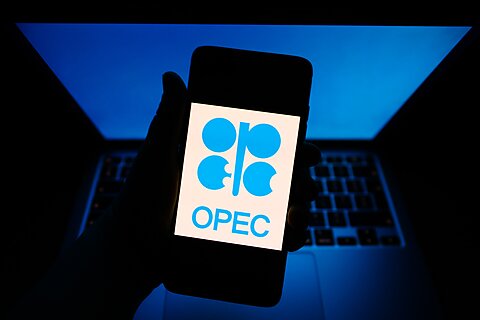David Kemp and Peter Van Doren
The Hamas attack on Israel last month occurred one day after the 50‐year anniversary of the start of the 1973 Yom Kippur War between Israel and a coalition of Arab nations. This parallel quickly led commentators to ask whether, like in 1973, the current crisis would coincide with an increase in world oil prices.
In 1973, Arab oil‐exporting countries embargoed the United States and other Western nations that supported Israel. According to the American collective memory, the Arab oil embargo was responsible for the indelible oil price hikes and gasoline shortages of the early 1970s and helped solidify the power of the Organization of Petroleum Exporting Countries (OPEC), which includes some of the Arab oil exporters, over oil prices.
Many observers today have highlighted various reasons why the Israel‐Hamas War is unlikely to be a repeat of the past. Notably absent from most commentary is that, according to economists and energy experts, the 1973 oil embargo was ineffective. Arab oil was simply rerouted through the international oil market, price hikes were actually caused by accelerating global oil demand, and US gasoline shortages and rationing were a consequence of US price controls on crude oil. The only long‐term effect of the oil embargo seems to have been to prop up misunderstandings of OPEC’s ability to dictate oil prices.
In the widespread view of the American public, media, and politicians, OPEC, which consists of 13 nations that produce roughly 40 percent of the world’s crude oil (including Saudi Arabia which alone produces about 13 percent), can control oil prices by adjusting its oil production.
Our new Cato policy analysis, “Misperceptions of OPEC Capability and Behavior: Unmasking OPEC Theater,” released today, asks whether OPEC can easily adjust oil production and if actual OPEC behavior aligns with the general understanding of OPEC’s power over oil markets.
Contrary to conventional beliefs about what OPEC does and how it operates, we conclude that:
OPEC members’ ability to quickly adjust their oil production is constrained by the geological and technical realities of oil extraction. The production rate of existing oil wells and reservoirs cannot be rapidly ramped up or down without significant tradeoffs and, in general, increasing overall oil production rates requires drilling new oil wells. In other words, Saudi Arabia, and OPEC overall, cannot turn up or down the amount of oil they produce as if they were varying water flow from a spigot.
Saudi Arabia and other OPEC nations have, at most, relatively small amounts of excess production capacity, or “spare capacity.” In the 1980s and 1990s, OPEC did have large amounts of spare capacity, but this was the result of happenstance, not a specific policy choice. Investing in excess capacity is expensive and in politically unstable countries and regions increases the risk of military takeover of that capacity.
In general, OPEC members deplete their reserves at a slower rate than non‐OPEC nations. But the reason why is less likely a conscious decision to limit oil supply and more likely a consequence of difficulties acquiring the large amount of capital necessary to fully invest in oil production capacity. In particular, countries like Saudi Arabia use most of their oil revenue (at times, more than 90 percent of yearly Aramco profit) to fund expansive welfare states, leaving little behind for investment in increased capacity.
Academic evidence on OPEC’s ability to influence oil prices is inconclusive. Though OPEC may have at one time more explicitly attempted to set oil prices, since the 1980s it seems unlikely that OPEC has been a successful oil cartel.
On the surface, OPEC sets production quotas for its members, but cheating on these quotas is rampant and large. From 1993 to 2007, for example, OPEC members produced more than their quota on average 80 percent of the time. And OPEC members demonstrated little adherence to changes in their quotas. On average, they adjusted their production by less than a third of prescribed cuts or increases.
Most tellingly, we also examine the production behavior of three key members of OPEC: Saudi Arabia, Kuwait, and the United Arab Emirates. These three members are some of the most politically stable. Together, they produce a majority (55 percent in an average month from 2003 to 2022) of OPEC’s total output and possess nearly all (roughly 95 percent) of OPEC’s supposed spare capacity.
If OPEC were rapidly adjusting its oil production to control oil prices, as is commonly thought, the month‐to‐month change in oil production of these three countries would likely show large swings. Interestingly, however, what we see is that their production profiles are actually strikingly similar to the United States.
Figure 1 shows the month‐to‐month production change of the three OPEC members and the United States. Before 1993, the production profiles of the OPEC nations are very volatile whereas the US is much more consistent. This period coincides with more explicit attempts by OPEC nations to set an oil price and defend it by adjusting production. Since 1993, however, the OPEC nations’ profiles have become much less volatile and look similar to that of the United States. In fact, the production variation of the three countries is statistically indistinguishable from the variation of the US.
Altogether, what we find suggests that the attention paid to OPEC is undue and, on the part of politicians, largely self‐serving. Political scientist Jeff Colgan argues that OPEC is a “rational myth” that confers domestic and international political benefits to its members. We add that Western leaders are happy to play along as OPEC provides a convenient scapegoat when oil prices are rising or falling, an event that politicians cannot control. This view of OPEC implies that the American public, media, and politicians should be less concerned with OPEC’s actions.
Instead, each time OPEC comes up in the news cycle we get another round of OPEC theater. As our paper concludes, “OPEC members bluster to their citizens with the appearance of controlling the West, while Western countries reciprocate by using OPEC as a scapegoat for unpleasant oil supply or demand shocks. The most effective way to undermine OPEC would be for Western leaders to stop paying attention to—and playing along with—the theatrics.”















